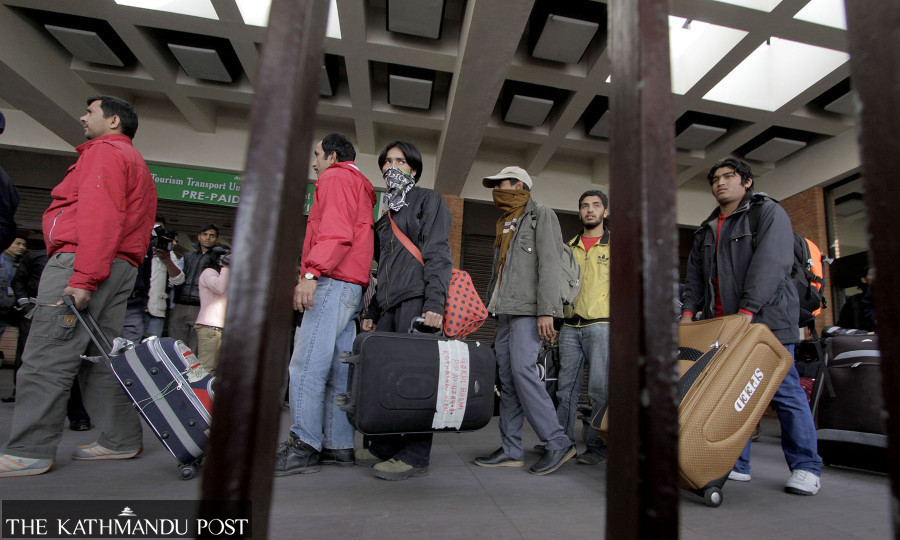Editorial
Get the point?
Nepali migrant workers cannot travel to labour destinations as they are yet to be inoculated.
The fallout of the unimpressive vaccine rollout in Nepal is becoming more apparent each successive day, the latest instance being the failure of Nepali migrant workers to travel to labour destination countries as they are yet to be inoculated. One of the most devastating effects of the long spell of lockdowns, travel restrictions and border sealings in much of the world in the past year and a half has been in the lives of Nepali migrant workers working in labour destination countries in the Persian Gulf and Southeast Asia. While thousands of workers who had lost their jobs were left stranded in the destination countries, and had to be repatriated home, thousands of others have now been left stuck in the home country even if they hold valid travel documents.
The reason: Even though international flights to labour destinations have resumed and the countries are gradually reopening their borders to labour migrants, the migrants themselves are unable to travel as they have yet to be inoculated against the coronavirus. Dubai, for instance, has said foreign nationals with UAE residency visas who are stuck in specified nations could return if they have been inoculated with vaccines approved by the UAE. Kuwait has said it would allow foreign nationals into the country if they are inoculated with Oxford-AstraZeneca, Pfizer, Moderna or Johnson and Johnson and carry valid residence permits. Saudi Arabia is also set to reopen its borders to labour migrants, but non-vaccinated people have to be quarantined.
As countries worldwide attempt to resuscitate their economies while also considering the possibility of yet another wave of the Covid-19 pandemic, the balance they are trying to maintain by keeping vaccination at the centre is understandable. But that very balance is now proving a dead end for the young Nepali labour workforce that is seeking its luck in labour destinations abroad. The fact that Nepal has faced a sharp economic downturn means that more Nepalis are seeking to go abroad in search of work. However, it is not only the new aspirants but also those who already have valid residence permits in the destination countries who have been stuck in the home country.
There is some point in the argument that the workers who have valid travel permits to labour destination countries should be inoculated because, after all, they are going abroad to make money and will ultimately send remittances home. But at a time when the country is unable even to inoculate the most vulnerable population—the elderly—the idea of inoculating the youth just to send them abroad also sounds unethical. The only way out of this imbroglio is to ramp up the vaccination drive itself.
In the cut-throat world of migrant labour work, Nepalis cannot afford to be left behind for lack of inoculation, because the work will go to the labourers of other countries who have been inoculated. If the Nepal government cannot inoculate outbound migrant labourers immediately, it could at least request authorities in the labour destinations to allow them safe passage into the country with a negative PCR test and a quarantine facility paid for by the recruiting agencies.
It is understandable that the labour destination countries have used significant portions of their resources to inoculate their populations, and are concerned about keeping the virus at bay. But it is not enough for rich countries to continue living in a cocoon anymore, having fully vaccinated their citizens alone. The failure of poor countries like Nepal to inoculate a large section of their citizens is also reflective of the global vaccine inequality in which the rich countries are complicit.




 13.12°C Kathmandu
13.12°C Kathmandu














